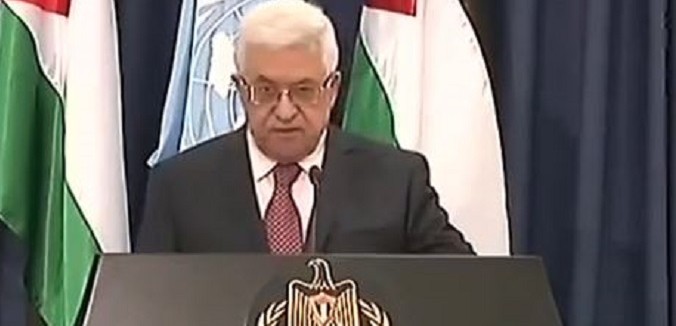A recent speech by Palestinian Authority (PA) President Mahmoud Abbas – in which the Palestinian leader declared that “there will be no peace” unless several contentious Palestinian demands were fully met, and several Israeli red lines were definitively crossed – has triggered concerns that the current Palestinian leadership may be either unable or unwilling to make peace. Abbas’s speech, delivered last Friday, included declarations that Israel will have to cede the entirety of East Jerusalem and that the Jewish state will have to accept the so-called “right of return,” a policy that would have Israel permitting millions of Palestinian refugees and their descendants to flood into Israel. The result would be an all-but-certain eradication of Israel as a Jewish homeland.
“Without east Jerusalem as a capital of the state of Palestine, there will be no peace between us and Israel,” Abbas said. Abbas also reiterated that he will not recognize Israel as the homeland of the Jewish people. Netanyahu has raised such a demand, and there is growing expectation that it will be included in Kerry’s proposal. “We will not recognize it,” Abbas said. “We will not accept and it’s our right not to recognize the Jewish state.”
Israeli Prime Minister Benjamin Netanyahu reportedly voiced concerns over Abbas’s speech, worrying that the Palestinian leader’s rhetoric might mean he “wasn’t ready to make tough decisions.” Abbas’s rhetoric is bound to draw comparisons to moves made by former Palestinian leader Yasser Arafat, who for decades claimed that he was ready to make peace until – when presented with functionally maximal Israeli concessions – he declined. The incident is likely to heighten concerns, already engendered by recent Palestinian incitement and expressions of anti-Israel conspiracy theories, that Palestinian civil and political society is not yet sufficiently robust for sustaining an emerging state alongside Israel.
[Photo: News World Planet / YouTube]




